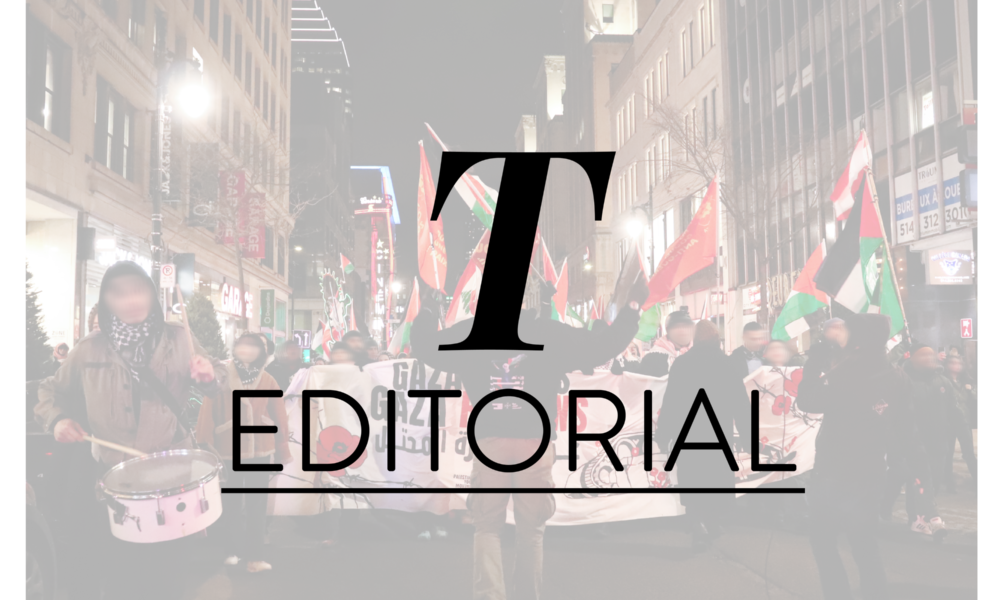On Nov. 25, the McGill administration announced an immediate suspension of room bookings for extracurricular speaker events until January, citing “unacceptably high” security risks and the need to protect the school’s academic mission during the exam period. The decision follows recent backlash surrounding the invitation of Mosab Hassan Yousef to speak at McGill. Yousef, a highly controversial figure, has made public statements widely criticized as hateful and Islamophobic, such as stating that he does not have any respect for Muslims, and that he believes that Islam is not a peaceful religion. He has also expressed harmful views about Palestinians, including claiming that Palestinian is not a nationality nor an ethnicity. His past appearances at other universities, such as Princeton, have sparked similar controversy. By asking students to engage in discussions with individuals who dehumanize them, McGill is both insulting and endangering students.
This pause of in-person events also coincides with recent tensions over UN Special Rapporteur on the Occupied Palestinian Territories Francesca Albanese’s academic talk on Nov. 4, where student organizers alleged that the university tried to prevent the event from taking place by relocating it multiple times, while simultaneously facing legal pressure from various campus groups to cancel her appearance entirely.
However, the recent suspension raises concerns about McGill’s role in perpetuating division on campus. The administration has acted against the outcomes of student elections before, such as preventing the Students’ Society of McGill University (SSMU)’s adoption of the Palestine Solidarity Policy in April 2022, and it has failed to acknowledge its own contributions to the increasingly hostile campus environment through the increased policing of its students. Rather than creating opportunities for meaningful discussion, McGill’s approach exacerbates the divisions which they claim to want to eradicate, leaving students and student groups in an increasingly polarized environment. Thus, while McGill claims that moving controversial events online might be beneficial in protecting immediate physical security, it fails to address the deeper issues at play.
McGill’s course of action is symptomatic of a broader issue: The administration’s unwillingness to engage with its community in a productive way. Controversial speakers have historically been a hallmark of university life, but their presence (or enforced absence) now increasingly fractures campus communities rather than fostering considerate dialogue and academic discourse. This is not simply a failure of communication—it reflects McGill’s neglect in creating a campus environment where all voices can be heard. The university’s tendency to prioritize its image over student concerns, as seen in its suppression of protests and lack of thoughtful consultation, has only worsened the situation. Further, participating in the criminalization of student activism undermines the very principles of free expression and open dialogue that universities claim to uphold.
By staying engaged, students can challenge the false equivalence between platforming free speech and hate speech, taking a firm stand against rhetoric that marginalizes or harms vulnerable groups. SSMU also has a responsibility to represent the voices of those the administration overlooks, including holding firm on their activism against the genocide in Palestine. This is a crucial time to push SSMU to reflect the will of the student majority and advocate for inclusive, democratic practices on campus. Every student has a role in presenting McGill with demands for accountability and justice while maintaining sustained, collective pressure to ensure real change.
Rather than hiding behind a facade of neutrality, McGill must confront the flaws in its decision-making process, particularly its tendency to reactively oppose activities instead of addressing and unpacking the root causes of campus tensions. Neutrality in the face of harmful rhetoric is not impartial—it is a choice that often perpetuates harm and division. Students must hold McGill accountable for moving beyond short-term fixes and urge the university to develop transparent, inclusive policies rooted in empathy and care, instead of simply avoiding conflict through pausing in-person speakers altogether. By involving students—especially those from marginalized groups—in shaping these policies, the administration can ensure that its actions are informed by the community it serves, rather than dictated by external pressures or fears of reputational damage. If McGill truly values academic freedom, it must recognize that freedom thrives in a democratic, inclusive environment and commit to fostering a campus culture that bridges divides rather than deepening them.









